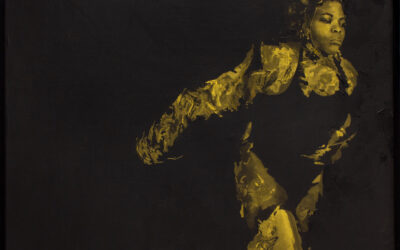A no-holds-barred insight into what it is like to be a woman in present-day South Africa, fraught as it is with taboos and dangers, writes Jessie Cohen about Because the Night by Stacy Hardy (Pocko).
For Stacy Hardy – author of a newly published series of short stories titled Because the Night – “bodies are unruly things, vicarious entities: they get ill, they experience strange desires, they’re always knocking something over and tripping up.
“The page,” Hardy tells me, “is where I seek to express the body in all of its vulnerability.”
To tread the line between private and public expression, Hardy adopts the point of view of young, uncertain female protagonists who negotiate urban and rural South Africa and, indeed, their own bodies through unabashed submission to a desired male other.
In what is described by the publisher as “uniquely female insights into sex, love, intimacy and power”, Hardy paints an image of women stuck in a state of perpetual waiting. For many of the characters, deliverance is envisioned through the willed actions from a lover, brother or ex-partner either to call, fuck or find her. Female passivity is the name of the game.
According to Hardy, the short story is the perfect literary form to express women’s experience. “As opposed to the masculine grand narrative, it allows for uncertainty.” Yet, with ironic conviction, she tells me: “This is not feminist literature. I’m just a chick writing about South Africa from a woman’s perspective.”
Because the Night must be celebrated for stretching the boundaries of “acceptable” female experience in literature. It offers an empowering, escapist journey for women, especially relevant to a South African readership, where perceived danger lurking in dark public spaces severely curtails women’s mobility and expression.
What’s more, by pushing the boundaries of form and taking the scope of female experience to the edge, the book also challenges a narrow feminist perspective to allow for womanhood to emerge in all its fraught complexity as an organic trajectory where self-objectification and un-PC desires are explored and judgment holds no place.
For full review by Jessie Cohen see Mail & Guardian






